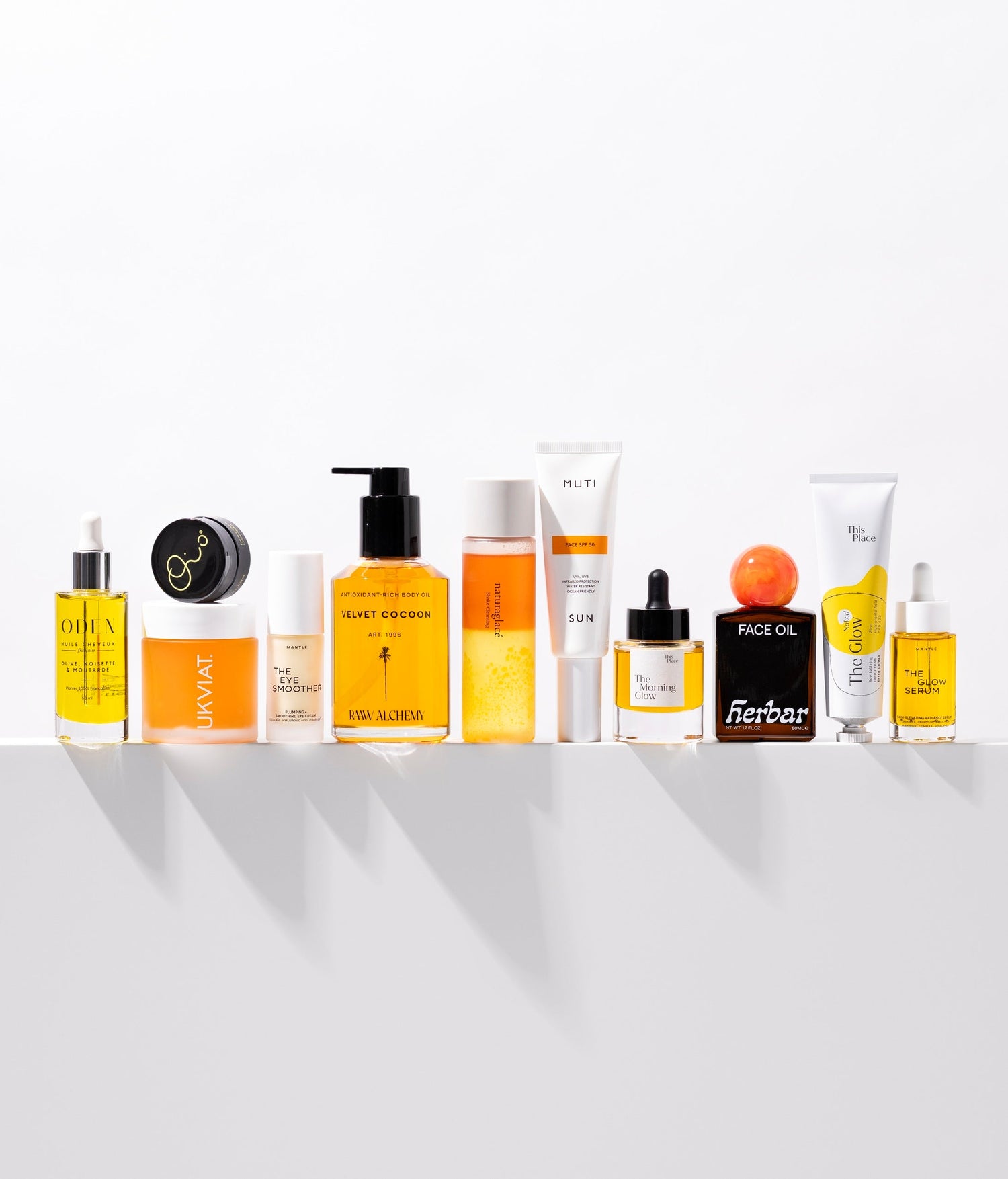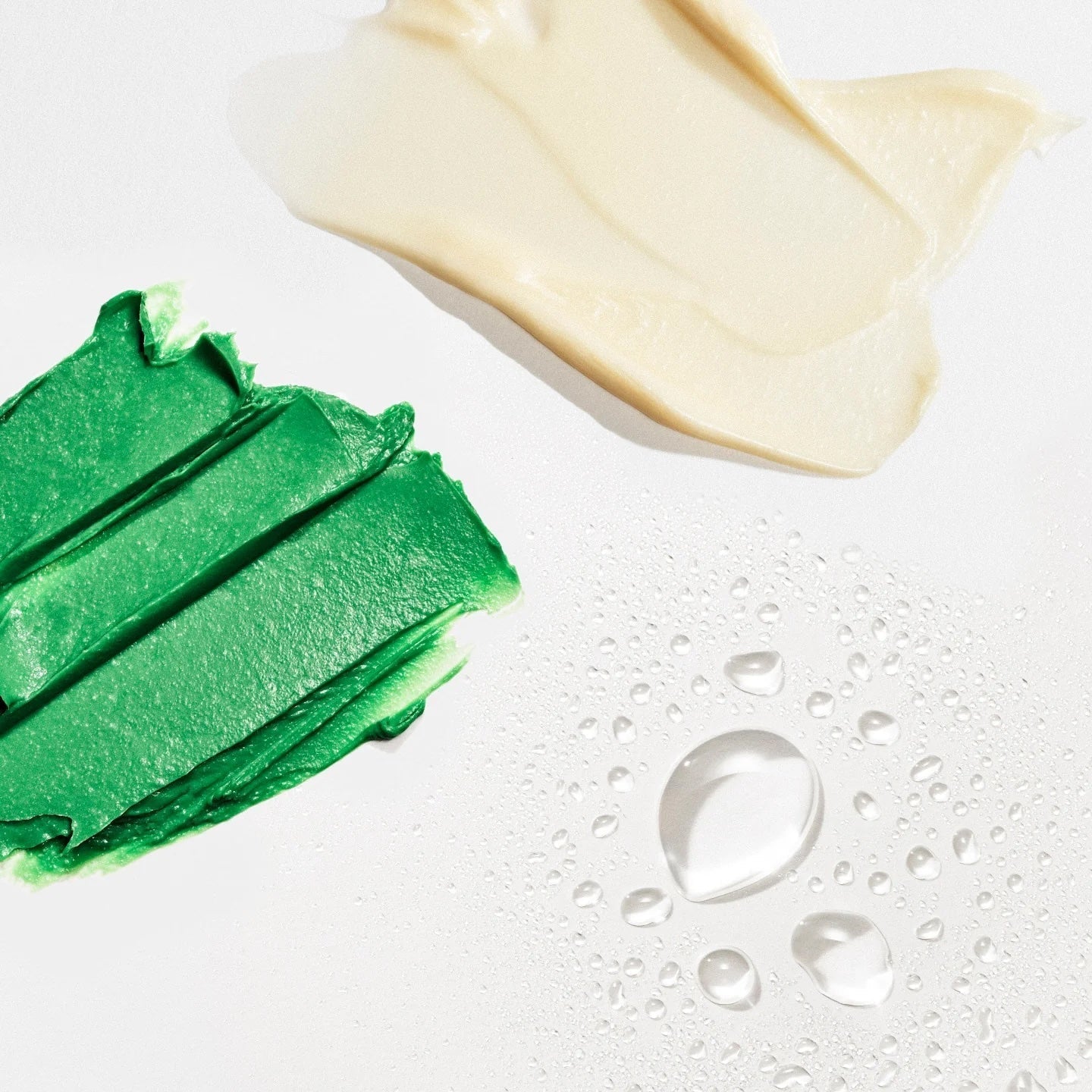
With an area of one and a half to two square meters, the skin is the largest sensory organ in the human body. It makes up around a sixth of our body weight, we breathe through it and it protects us. The skin is not only an extremely extensive organ, but also a very delicate one that also absorbs and eliminates stress and toxins that are in our body. That's why all products and substances that come into contact with our skin should be carefully checked for their contents.
If you use natural cosmetics, you don't have to worry. The ingredients of natural cosmetic products are based on raw materials from nature's treasure trove. They help maintain the health of the skin at every age instead of putting unnecessary strain on it.
But the range of cosmetic products that are based on the trend towards naturalness is now almost unmanageable. Even conventional cosmetics are now often referred to as natural cosmetics if only a few drops of plant extracts or vegetable oils are added to the chemical base.
“Controlled natural cosmetics”, on the other hand, is based on a holistic approach: the origin and selection of the raw materials used are from controlled organic cultivation wherever possible, gentle processing, consistent compliance with the ban on animal testing in the development and manufacture of the products, environmentally friendly packaging as well as the relationships between the people involved Each other and nature are the focus here.
This makes “Organic Skincare” much more than a short-lived trend. It offers you healthy, innovative and holistic care to beautify, vitalize, relax and refresh your body.
Here are 8 compelling arguments for natural cosmetics:
1. Because it consists exclusively of natural raw materials
Natural cosmetics are based on nature. Conventionally manufactured cosmetics also use natural ingredients. However, these are often so changed by chemical processes that only the name remains of nature. This should not be the case with certified natural cosmetics. Raw materials that are as natural as possible end up in the jar and cream pot without the addition of chemical additives. The range is large: In addition to minerals and traditional medicinal plants such as marigold, chamomile and sage, natural cosmetics is discovering new ingredients such as the ice plant from South Africa or the acai fruit from Brazil. The best possible results are brought out of the natural substances using the gentlest possible processes; they end up in cosmetics as oil, fat, wax or extract. The manufacturers rely on organic cultivation and certified wild collections as much as possible. If it is important to you, you should pay attention to the labeling: The organic content in the product ranges from 10 to more than 95% raw materials from organic farming.
2. Because it is free of chemical-synthetic fragrances, colors and preservatives and raw materials from petroleum chemistry
Waste products from the petroleum industry recycled? It's hard to believe, but it's like this in many conventionally manufactured cosmetic products. Synthetic glycerin is obtained from the gas propene during petroleum processing and is used in face and hand creams. Paraffins are left behind during petroleum distillation. They form a waterproof film on the skin and are often used in lipsticks, but are also used in creams because they make the skin appear plumper. The same is true with silicones, which are used as plasticizers in shampoos, for example. The synthetic substances are made from silicon, oxygen and chlorinated hydrocarbons. The cheap fillers permanently damage the skin and hair because they lie over the cells and accumulate moisture there. This makes the skin brittle and hair brittle. Natural cosmetics have other basic ingredients: vegetable oils and waxes provide care and suppleness, while natural surfactants are based on sugar or coconut with as few processing steps as possible. Vegetable glycerin is also used in natural cosmetics. The extract penetrates the skin and helps to bind moisture. This means that all raw materials and products can be easily degraded.
3. Because it stands for fair working conditions and environmentally friendly production
The raw materials used must, as far as possible, come from organic farming and certified wild collections. But careful production is also mandatory. The BDIH's testing criteria, for example, give the natural cosmetics industry clear guidelines: While conventional cosmetics manufacturers have raw materials and products irradiated with radioactive radiation, for example, to kill germs, this is an absolute taboo in natural cosmetics. The focus of controlled natural cosmetics is not only on health and environmental protection, but also on people: many manufacturers support new agricultural cooperatives in developing countries and provide help for self-help. Strengthening instead of exploiting is the basic ethical rule for all sustainable production communities. In collaboration with development and environmental protection organizations, the local conditions are to be sustainably improved. Fair wages and good working conditions for employees provide the framework for this.
4. Because manufacturers rely on economical, environmentally friendly and recyclable packaging
Huge packaging and a tiny product: deceptive packaging is repeatedly criticized. All too often, the cost and benefit are not in relation to the type of packaging. Natural cosmetics, on the other hand, follow the motto: As much as necessary, as little as possible. Many products are recyclable and manufactured in such a way that they can be returned to the material cycle with low levels of pollutants. Wherever possible, recycled raw materials are used for PET packaging. Manufacturers are also constantly developing new processes to make packaging even thinner and more resource-efficient. The first manufacturers also offer a take-back service for empty product packaging so that they can be fed directly into in-house recycling. The future of the industry lies in the cradle-to-cradle system. This means that products should be manufactured in such a way that they no longer generate any waste, are either 100 percent compostable or suitable for further use. You can also return your empty packaging to us - we will recycle it. This is good for the climate: for every kilogram of plastic saved, two kilograms less carbon dioxide enters the atmosphere.
5. Because it is suitable for allergy sufferers
The trend towards natural products is also a consequence of the increase in allergies as a result of increasing pollution. Many people therefore react to certain ingredients, especially synthetic colors and preservatives. Anyone who uses natural cosmetics avoids these groups of substances. The color in lipsticks and make-up is provided by plant extracts and mineral pigments, such as beetroot, ultramarine or iron oxides. For a pleasant scent, use essential oils, floral waters or herbal extracts. These can also lead to allergic reactions in sensitive skin. But natural cosmetics take precautions: the essential oils are only used in very small concentrations between 0.5 and 1 percent. In these mini quantities, the natural fragrances are usually well tolerated. Contact allergies were more common to isolated fragrances and less to mixtures such as essential oils. However, the following also applies here: If you are sensitive, you should test carefully.
6. Because no animal experiments are carried out and none are commissioned
Since March 2013, products that have been tested on animals have no longer been allowed to be sold in the EU. But there are loopholes: The ban only applies to substances that were developed exclusively for cosmetics. Ingredients that are also used in other products, such as medications, may continue to be tested in animal experiments. The buyer still cannot be completely sure when it comes to conventional cosmetics. With certified natural cosmetics, however, consumers can rely on binding ethical rules. The manufacturers do not use any ingredients that were tested on animals after January 1, 1998. A transparent, carefully selected supplier network ensures animal raw materials, such as milk and honey, according to high standards. In contrast to conventional cosmetics, the use of raw materials from dead animals (animal fats, mink oil, marmot fat, collagen or fresh cells) is not permitted. In recent years, more and more natural cosmetics manufacturers have been making their product lines vegan.
7. Because natural cosmetics are not contaminated
Radiant complexion? In order to reduce the germ content of organic raw materials, some cosmetic companies radioactively irradiate cosmetic products, which results in damage and changes to the plant raw material. For natural cosmetics, radioactive or ionizing irradiation of the raw materials is prohibited.





